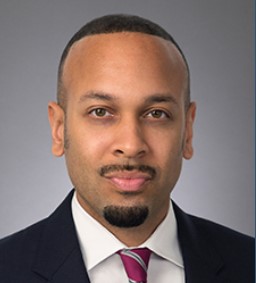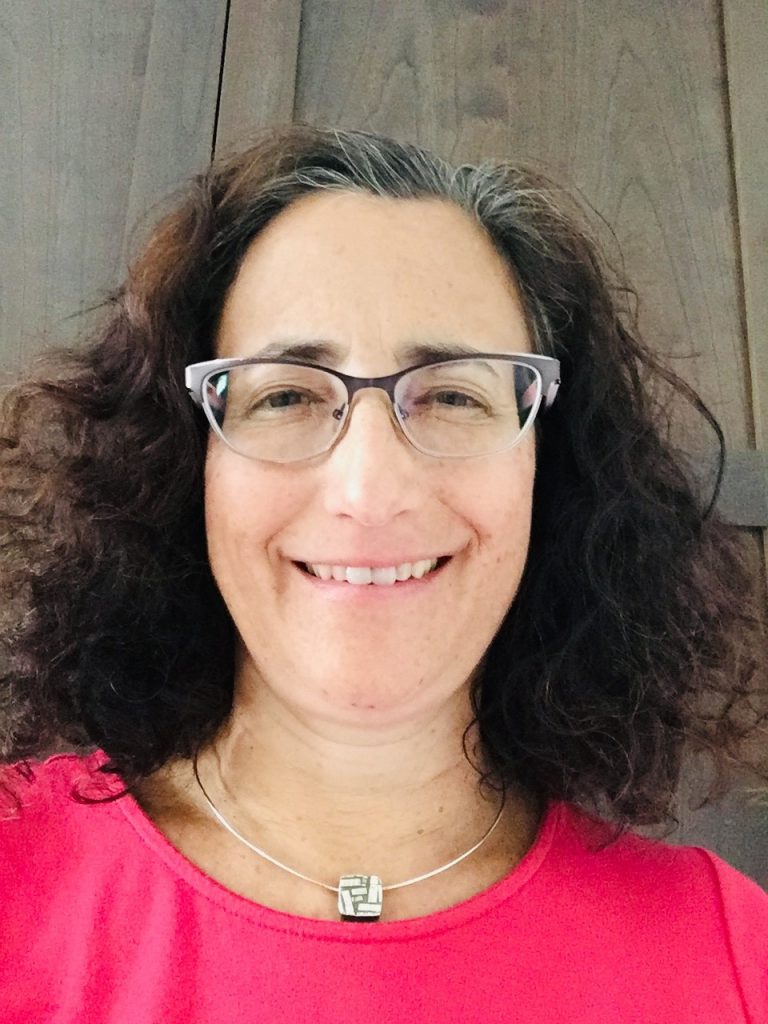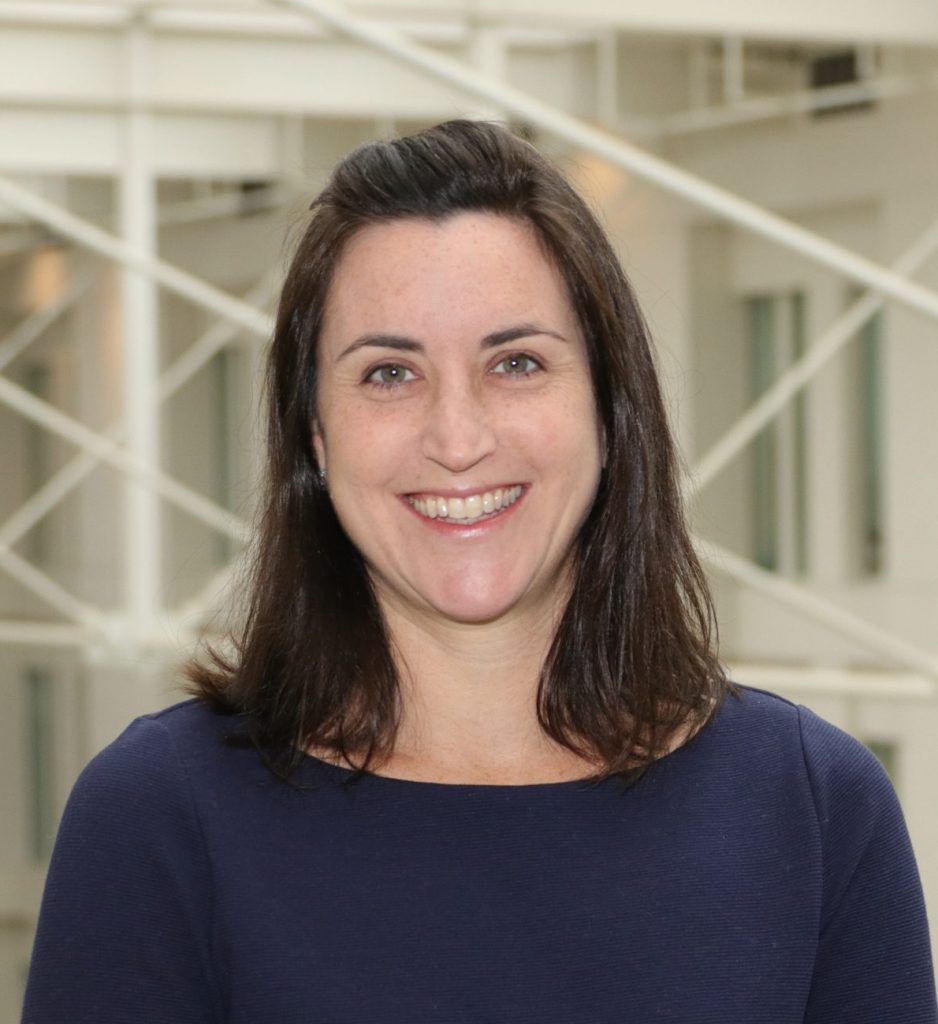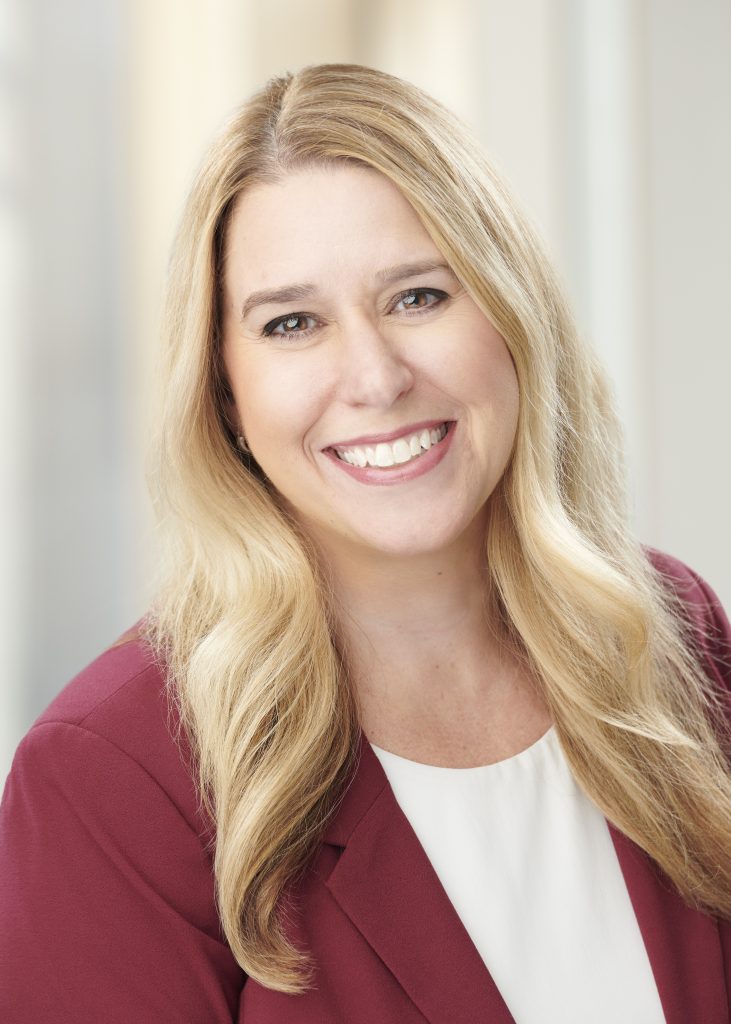Overview

July 21, 2020, 12:00 PM – 3:15 PM Eastern
July 22, 2020, 12:00 PM – 4:00 PM Eastern
Important Notice: After careful consideration of evolving COVID-19 pandemic developments, IDFA’s Regulatory RoundUP transitions to a webinar series.
As one of the most highly regulated food industries in the United States, dairy must comply with regulations issued by multiple federal agencies, including the U.S. Food and Drug Administration, the U.S. Department of Agriculture, the U.S. Environmental Protection Agency, the U.S. Department of Homeland Security and the U.S. Department of Commerce, among other state and local regulatory bodies. IDFA’s Regulatory RoundUP connects dairy professionals with regulatory officials who have direct responsibility for the rules affecting dairy plants, products, and personnel.
This year's Regulatory RoundUP features sessions on:
- COVID-19 and Working with FDA: What Have We Learned and How Can We Build Upon Those Lessons
- FDA’s New Era for Smarter Food Safety: Where Do We Go Next?
- How Cellular Agriculture Technologies Fit into FDA’s Regulatory Agenda
- Food Fights in the Courtroom – Litigation Update
- Compliance Strategies for FDA’s Intentional Adulteration Rule
- Bio-Active Ingredients: Getting FDA to “Yes” on CBD and Beyond
- Traceability for the Dairy Industry: The Art of the Possible
- Chasing Zero? The Evolution of Chemical Residue Testing and Regulatory Implications for Dairy
- Local Influence on State and Federal Nutrition Policy
Participants will hear from these featured speakers:

Mark Moorman, PhD
Director of the Office of Food Safety, CFSAN, U.S. Food & Drug Administration

Martin Hahn
Partner | Hogan Lovells

Veronica Colas
Counsel, Hogan Lovells

Taylor Wallace, PhD, CFS, FACN
Principal & CEO | Think Healthy Group

Jessica Hixson
Director of Government Affairs | SNAC International

Susan Zucker, PhD
Director of Supply Chain | Agri-Mark Dairy Cooperative

Brian P. Sylvester
Special Counsel | Foley & Lardner LLP

Elizabeth B. Fawell
Partner, Hogan Lovells

Joseph A. Levitt
Partner | Hogan Lovells

Joseph Scimeca
Former Senior Vice President, Regulatory & Scientific Affairs, IDFA

Jason Bashura, MPH, RS
Senior Manager, Global Food Defense | PepsiCo

Lauren Posnick Robin, Sc.D.
Center for Food Safety and Applied Nutrition | Food and Drug Administration

Sarah Winfield
Center for Food Safety and Applied Nutrition | Food and Drug Administration

Liz Sertl
Senior Director, Community Engagement, GS1 US
Join IDFA experts and regulatory decision-makers for two days devoted to understanding the intent behind federal regulations, the parameters for compliance and how best to engage in the process to shape pending regulations.
Agenda
| July 21, 2020 | Event | Speaker | Location |
|---|---|---|---|
| 12:00pm - 12:45pm |
FDA’s New Era for Smarter Food Safety: Where Do We Go Next?
|
||
|
Following the FDA’s earlier announcement of the New Era of Smarter Food Safety initiative, the FDA released its Blueprint for the Future on July 13, 2020. The Blueprint outlines how the agency plans to leverage technologies to enable a more digital, traceable, and safer food supply. While this initiative and the specific goals of the Blueprint will rely on technology, it must be people-led and utilize public-private-partnerships. The FDA has determined several priority areas for focus: tech-enabled traceability, use of advanced tools and predictive analytics for prevention and response, addressing new business models and the modernization of retail sales, and food safety culture.
Dr. Mark Moorman, FDA Director of the Office of Food Safety will share his insights on the Blueprint and will be available to answer questions.
|
|||
| 12:45pm - 1:30pm |
How Cellular Agriculture Technologies Fit into FDA’s Regulatory Agenda
|
||
|
In March 2019, the FDA and USDA announced a basic framework for jointly regulating human food products from cultured animal cells. According to the framework, FDA will oversee the initial aspects of the production process and regulate the collection and growth of the cultured cells. Once the cells mature enough to become “meat”, USDA then will take over and regulate the production including the labelling of the products. Presumably, if the product is not labeled as “meat” by USDA, then the FDA would solely regulate the product. The regulation of acellular agriculture products like dairy and egg white proteins that are sourced from cell cultures would be entirely regulated by FDA. Many questions remain about how the FDA will regulate these products, such as key aspects necessary to deem it as GRAS, and labeling of the ingredients as well as finished products containing the products (including compliance with FALCPA).
|
|||
| 1:45pm - 2:30pm |
Food Fights in the Courtroom – Litigation Update
|
||
|
In 2020, litigation often drives food labeling decisions, not FDA regulations. In the last decade, lawsuits over food labeling focused mainly on the use of claims such as “natural” and “healthy.” More recently, plaintiffs have scrutinized and courts have considered a multitude of other labeling claims, as well as the labeling of plant-based foods and flavor labeling. In this session, Veronica Colas will share her expertise advising food companies on the current state of food labeling litigation, lessons your company can learn from these lawsuits, and how we might forecast the future of this area of litigation.
|
|||
| 2:30pm - 3:15pm |
Compliance Strategies for FDA’s Intentional Adulteration Rule
|
||
|
FDA’s “Mitigation Strategies to Protect Food Against Intentional Adulteration” rule requires companies to determine vulnerabilities and implement protections against potential major attacks on the food supply. IDFA's goal is to make certain that the dairy industry can continue to implement food defense practices in a way that is tailored to their operations and that FDA investigators provide reasonable flexibility in interpreting and enforcing the regulation. Though FDA has published guidance, questions still remain. This session will offer insights on how to prepare and not be caught off guard when FDA begins compliance inspections in earnest.
|
|||
| July 22, 2020 | Event | Speaker | Location |
| 12:00pm - 12:45pm |
Bio-Active Ingredients: Getting FDA to “Yes” on CBD and Beyond
|
||
|
The market for food, cosmetic and dietary supplements with Cannabidiol (CBD) continues to explode. Nonetheless, FDA’s position thus far is a firm “No”, preventing dairy and other manufacturers from using CBD as an ingredient in food due to its use as an active ingredient in the drug Epidiolex. This presentation will evaluate the regulatory basis for the FDA position and explore a strategy for the dairy industry to help FDA affirm the safe and lawful use of CBD in dairy products.
|
|||
| 12:45pm - 1:30pm |
Traceability for the Dairy Industry: The Art of the Possible
|
||
|
In today's world, there is increasing pressure from customers, consumers, lawmakers and regulators to ensure greater visibility and traceability throughout the supply and value chains. Interests range from calling out bioengineered or rainforest-friendly ingredients to protecting consumers during a foodborne outbreak by ensuring fast and complete removal of implicated products from the market. But in many cases, full traceability from farm to fork is impossible. Understanding and delineating what is possible and reasonable will help the dairy industry ensure mandatory requirements don't go too far, too fast.
|
|||
| 1:45pm - 2:30pm |
Chasing Zero? The Evolution of Chemical Residue Testing and Regulatory Implications for Dairy
|
||
|
Methods of analysis for detection and quantification of chemical contaminants that might end up in finished products are becoming more powerful and able to detect smaller and smaller concentrations, well below levels considered hazardous. For Grade "A" milk, antibiotic residues have been an important area of focus over recent years, but incidental environmental contaminants such as per- and polyfluoroalkyl substances (PFAS) and others have also caught the attention of industry and regulators alike. This presentation will outline FDA's current thinking and approaches to assessing and managing chemical residue risks in dairy foods.
|
|||
| 2:30pm - 3:15pm |
Local Influence on State and Federal Nutrition Policy
|
||
|
While many nutrition-related policies, such as nutrition standards for school meals, are set at the federal level, cities and states also set nutrition policy that may work its way up to federal action. What local policies have advanced to the federal level and what other local policies could make the jump?
|
|||
| 3:15pm - 4:00pm |
COVID-19 and Working with the FDA: What Have We Learned and How Can We Build Upon Those Lessons
|
||
|
COVID-19 was and continues to be a cataclysmic event that profoundly affected the relationship between the food industry and the FDA and how we work together. This session will analyze industry’s working relationship with FDA during the COVID-19 pandemic with the intent of identifying lessons learned and areas for future enhanced collaborative efforts. COVID-19 lessons can provide a guidepost for creating a strengthened partnership with FDA that can lead the way for improvements in the safety, continuity, and robustness of the food supply, ultimately resulting in advancements in public health. Key questions to be addressed by the panel are:
• What were the COVID-19 key drivers that helped foster a change in the relationship between the FDA and the food industry?
• How can these key drivers be captured and used to implement changes in policies, approaches, and procedures going forward?
• What else needs to occur to build upon the lessons learned and work more effectively and efficiently with FDA?
|
|||
FDA’s New Era for Smarter Food Safety: Where Do We Go Next?

Mark Moorman, PhD
Mark Moorman is the Director of the Office of Food Safety at the Food and Drug Administration where he leads a team of professionals focused on improving the safety of our food supply. Prior to joining the FDA, Mark was the Senior Director of Global Scientific & Regulatory Affairs for the Kellogg Company in Battle Creek, MI with responsibilities for emerging food safety and nutrition technical and regulatory issues. Prior to joining the Kellogg Company in 1998, Mark spent 10 years with Silliker Laboratories as the Technical Director of Microbiology responsible for assisting clients with microbiological food safety and quality issues. Mark has his undergraduate and Ph.D. degrees from Michigan State University in Microbiology and Food Science.
How Cellular Agriculture Technologies Fit into FDA’s Regulatory Agenda

Brian P. Sylvester
Brian P. Sylvester is a special counsel and food and drug lawyer with Foley & Lardner LLP. He advises food, dietary supplement, cosmetic, medical device and prescription and over-the-counter (OTC) drug companies on federal and state regulatory compliance. As part of his practice, he regularly interfaces with the U.S. Department of Agriculture (USDA), the U.S. Food and Drug Administration (FDA), the Drug Enforcement Administration (DEA), the Federal Trade Commission (FTC) and analogous state bodies.
Drawing on his regulatory background as a former USDA lawyer, Brian is adept at navigating every stage of the production and distribution lifecycle – from premarket clearance through manufacturing, advertising, labeling, recalls and unanticipated regulatory scrutiny. He also regularly advises corporations and industry trade associations on strategies to shape federal and state policies and legislation.
Food Fights in the Courtroom – Litigation Update

Veronica Colas
Veronica Colas counsels clients on the regulations and policy issues affecting food companies from farm to table.
Using her keen awareness of today's class action litigation environment, Veronica helps develop new products, label claims, and advertising materials. She has a deep understanding of both current and forthcoming food labeling and production requirements ranging from nutrition and menu labeling, to the regulatory issues surrounding bioengineered foods and organic food production. As companies seek to communicate about the health, nutrition, or environmental benefits of their products, Veronica helps them navigate the regulatory landscape.
Veronica provides clear advice and practical solutions for compliance with labeling, advertising, and safety regulations from the Food and Drug Administration (FDA), U.S. Department of Agriculture, Consumer Product Safety Commission, and states. Veronica is a go-to on state food packaging laws, such as the California "recyclable" requirements and extended producer responsibility. She has significant experience in helping clients navigate regulatory enforcement challenges, such as recalls, Warning Letters, import detentions, and investigations by the Federal Trade Commission. Veronica works closely with trade associations and food companies to craft comments and develop strategies in response to public policy issues such as agency rulemaking and nutrition policy. She represents all segments of the food industry, including manufacturers, retailers, restaurants, and food service companies.
She is a regular speaker and contributor to industry publications, including providing training sessions to corporate clients on Food Law 101, food labeling and marketing, and claim substantiation.
Compliance Strategies for FDA’s Intentional Adulteration Rule

Jason Bashura, MPH, RS
Jason Bashura joined PepsiCo in March 2014, as Sr. Mgr., Global Food Defense, following 6 years with FDA’s Food Defense team. Jason responsibilities at PepsiCo include aiding 125+ manufacturing sites with the development of Food Safety Modernization Act (FSMA) Intentional Adulteration (IA) Rule compliant Food Defense Plans; to that end he has completed more than 100 Vulnerability Assessments on a variety of food and beverage platforms across PepsiCo.
While with the U.S. FDA’s Food Defense Team (2008-13) Bashura was responsible for administering grants to state, local Tribal and territorial agencies to aid in the development of key food defense programs. Additionally, Jason was the project officer for multiple contracts and several projects tied to either food defense research or other FSMA angles related to food protection.
Prior to joining the FDA, Jason worked at the State of Connecticut’s Food Protection Program (2002-2004) where, as a Food “Bio-Security” Sanitarian, he participated in his first vulnerability assessment of a seafood processor in 2003. Bashura was responsible for outreach and training of certified food inspectors in general food defense awareness and performing risk-based food safety inspections.
As a public health emergency response coordinator for the Naugatuck Valley Health District (Connecticut / 2004-2008) Bashura oversaw the development of pandemic influenza, smallpox mass vaccination and anthrax mass dispensing clinic plans. Jason sought grant funds to aid in the development of the NVHD’s Medical Reserve Corps. During that time Bashura also served as a vice-chair and chairman of the Valley Chapter of the American Red Cross, and served as a volunteer firefighter/EMY with the Derby Fire Department’s Storm Engine Co #2 and the Storm Engine Company Ambulance Corps.
Bashura completed his undergraduate studies at Southern Connecticut State University (1996) and his Master’s Degree studies in Public Health from the University of Connecticut in December 2001.
Outside of work, Jason is the father of two of the best kids in the world, and he’s very active with their school groups and sport teams; on occasion his daughter has been known to refer to him as “Coach Mr. Daddy.”
Bio-Active Ingredients: Getting FDA to “Yes” on CBD and Beyond

Martin Hahn
Using his background in food technology and his comprehensive understanding of the laws governing the food industry, Martin Hahn helps clients navigate through the countless regulatory and business issues impacting the industry from farm to table.
He recognizes the demands clients face and finds innovative and creative solutions, particularly when responding to observations raised by regulators during inspections. Whether the issue involves obtaining the authorization of a new food or dietary ingredient, complying with manufacturing requirements, labeling or advertising, product recalls, or enforcement, Martin serves as an effective advisor and advocate.
Martin has handled almost every issue impacting the food industry. He has a comprehensive understanding of the laws affecting the labeling and advertising of foods, dietary supplements, infant formulas, medical foods, and foods for special dietary use. He helps anticipate new trends and develops the data needed to distinguish a client's products from others on the market. Martin uses his understanding of science and technology in the food industry to provide assistance in obtaining regulatory authorizations to market new food ingredients, food packaging materials, and dietary ingredients. He assists in responding to proposed regulations and draft guidance to keep clients informed on the latest trends in class action law suits to help anticipate new regulatory initiatives.
Martin grew up on a farm and worked in food processing plants before going to law school. His hands-on experience in the field and degree in food technology allow him to better understand the challenges his clients face in complying with the laws impacting food manufacturing. He understands Hazard Analysis Critical Control Point (HACCP) and the regulations under the Food Safety Modernization Act (FSMA).
Traceability for the Dairy Industry: The Art of the Possible

Susan Zucker, PhD
Susan is the Director of Supply Chain at Agri-Mark Dairy Cooperative and an adjunct business instructor at Champlain College in Burlington Vermont.
Agri-Mark manufactures and sells Vermont and New York cheese, butter, yogurt and cultured products under the brand name of Cabot and dried whey and non-fat dry milk powder under the brand Agri-Mark. In her role as Supply Chain Director, Susan oversees supply chain planning and service, master data standards, as well as export and customer compliance. In her role as adjunct business instructor at Champlain College she teaches a rotation of courses in both the graduate and undergraduate programs focused on supply chain.
Susan has an MBA from Plymouth State University and a doctorate in Organizational Management from Capella University. Her dissertation research was on the impact of data synchronization adoption on organizations and she has published several articles on this topic. Susan also is certified by APICS with the CPIM (Certification in Production Inventory Management) and is a member of ASCM.

Liz Sertl
Liz Sertl is Sr. Director, Community Engagement, at GS1 US, the not-for-profit information standards organization, and has more than 20 years of experience in the CPG industry. Working closely with supply chain partners in the retail grocery and foodservice industries, Liz facilitates collaboration best practices and guidelines that help companies improve product traceability and supply chain visibility through the adoption of GS1 Standards.
Chasing Zero? The Evolution of Chemical Residue Testing and Regulatory Implications for Dairy

Sarah Winfield
Sarah is a biologist who has worked at FDA/CFSAN since 2014. Prior to joining FDA, she worked at the Environmental Protection Agency (EPA) in their Office of Pesticide Programs (OPP) as a human health risk assessor and incident assessor evaluating the safety of pesticides. Prior to working in the federal government, she worked as an environmental consultant at Eastern Research Group writing site-specific risk assessments and in a genetic and developmental biology research laboratory at Massachusetts General Hospital.

Lauren Posnick Robin, Sc.D.
Lauren Posnick Robin, Sc.D., is Chief, Plant Products Branch, in the Division of Plant Products and Beverages, Office of Food Safety, Center for Food Safety and Applied Nutrition at the Food and Drug Administration. Dr. Robin is also the U.S. Delegate to the Codex Committee for Contaminants in Food. She has a B.A. in Biology from Swarthmore College and an Sc.D. in Molecular and Cellular Toxicology from the Harvard School of Public Health. She was an AAAS Risk Policy Fellow at the FDA from 1999-2000.
Local Influence on State and Federal Nutrition Policy

Jessica Hixson
Jessica Hixson is the Director of Government Affairs at SNAC International. SNAC International is the international trade association of the snack industry representing snack manufacturers and suppliers from over 400 companies worldwide.

Taylor Wallace, PhD, CFS, FACN
Taylor C. Wallace, PhD, CFS, FACN, is Principal and CEO at the Think Healthy Group and an Adjunct Professor in the Department of Nutrition and Food Studies at George Mason University. His academic research interests are in the area of nutritional interventions to promote health and prevent the onset of chronic disease. Dr. Wallace has a PhD an MS in Food Science and Nutrition from The Ohio State University and a BS in Food Science from the University of Kentucky. He operates the popular food and nutrition blog, www.DrTaylorWallace.com, is co-host of the weekly radio show, Risky Behavior™️, and a regular guest commentator in the mainstream media, regularly seen on NBC4 Washington and the Dr. Oz Show. He is a fellow of the American College of Nutrition and is the 2015 recipient of the Charles A. Regus Award, given by the American College of Nutrition for original research and innovation in the field of nutrition. Dr. Wallace is a Senior Fellow of the Center for Magnesium Education & Research, the Editor-in-chief of the Journal of the Dietary Supplements, Deputy Editor-in-chief of the Journal of the American College of Nutrition, the editor of six academic textbooks, author of over 50 peer-reviewed manuscripts and book chapters, and author of the cookbook, Sizzling Science.
The Huffington post calls Dr. Taylor Wallace “the nation’s premier food and nutrition guru.”
COVID-19 and Working with the FDA: What Have We Learned and How Can We Build Upon Those Lessons

Joseph Scimeca
Joseph Scimeca, PhD, led IDFA’s Regulatory and Scientific Affairs team. Scimeca has extensive technical regulatory and scientific expertise that includes over 33 years of industry experience. In his position with IDFA, he provided strategic regulatory and scientific leadership for the dairy food and beverage industry covering a broad range of areas including product safety, quality, and labeling; nutrition and health policy; product identity standards; food defense; sustainability initiatives; Codex and other international standards; technical trade barriers; and emerging science and technologies affecting the dairy sector.
He came to IDFA from Cargill Inc. where he worked for 16 years, serving most recently as Vice President of Global Regulatory & Scientific Affairs. For Cargill, Scimeca provided leadership for ensuring food, feed, and other consumer products were safe, protected against intentional acts of economic adulteration and bioterrorism, and in conformance with relevant food/feed regulations, standards, and internal policies. He managed a team of 30 regulatory professionals based in locations around the world that collaborated with their business partners in facilitating compliance against existing and emerging regulations. Previously, he held similar regulatory affairs roles with General Mills, Pillsbury, and Kraft.
Scimeca has a proven track record working with the FDA and USDA to lead the broad food industry in regulatory reform, with notable efforts in shaping and influencing FDA FSMA regulations, and with several foreign governments in their efforts to modernize food regulations, including China, Canada, India, EU, and Indonesia. Scimeca is skilled at building and leading private-public partnerships to advance food safety initiatives leading to improved public health.
He has and continues to chair or serve on numerous and varied technical committees for scientific, academic, and trade organizations, including the National Academy of Sciences, IUFoST, IFT, ILSI, and JIFSAN, among others. He has authored nearly 40 peer-reviewed scientific papers, monographs, and book chapters.
In his leisure time, he enjoys traveling with his wife and adult children, and finding time to run, backpack, and rock-climb. See LinkedIn Profile.

Elizabeth B. Fawell
Successfully navigating the detailed and often complex regulatory issues confronting the food industry, Elizabeth Fawell helps companies understand both the rules and various risks involved to make the most informed and strategic decisions.
Elizabeth has worked with every segment of the food industry, including manufacturers, distributors, retailers, restaurants, and food service operators, as well as their trade associations.
Her work on behalf of food industry clients with the Food Safety Modernization Act (FSMA) since its inception and her understanding of Hazard Analysis Critical Control Point (HACCP) systems provides her with the experience and perspective needed to counsel clients on how to comply with new requirements under the law. Elizabeth is also a Preventive Controls Qualified Individual (PCQI) and has completed the FSPCA PCQI training.
Elizabeth understands how laws, regulations, and guidance documents are developed, interpreted, and enforced. Her extensive knowledge enables clients to prevent or respond to enforcement actions such as Warning Letters, Import Alerts, and agency investigations. She helps clients in determining whether an RFR report is necessary and whether a recall is warranted. If so, she helps manage the recall to minimize business impacts.
Elizabeth provides real-time advice during factory inspections, helps clients prepare 483 responses, and drafts inspection manuals. She assists clients in lawfully and creatively promoting their products; such as the development of labels, claims, and website and promotional campaigns. Elizabeth also supports clients in advertising disputes and with responses to FTC and Attorney General investigations.
Elizabeth helps clients stay informed of and ahead of public policy issues and develops strategies for effective advocacy before regulators.

Joseph A. Levitt
As the U.S. Food and Drug Administration's former top food regulator, Joe Levitt brings a true insider's knowledge in helping clients successfully navigate complex industry regulation. Whether influencing policy making or confronting a threatened compliance action, Joe's 25 years of FDA experience puts clients in the best position to succeed.
Joe skillfully handles high-visibility recalls and compliance actions. If organizations find themselves in trouble with the FDA, they need someone with a deep insider's understanding of what works and what doesn't. Joe knows what the agency expects in the compliance arena and he can communicate a client's position calmly and effectively to the FDA so the matter is put behind them.
On behalf of the food industry, Joe was on the ground floor when Congress developed the landmark FDA Food Safety Modernization Act (FSMA). He was also a leading voice for the food industry when the FDA developed regulations that all food companies must now follow. Joe and his team know how to guide clients through the labyrinth of FDA's FSMA regulations to ensure that they are as prepared as possible for a FSMA inspection by the FDA.
Joe is among the most decorated officials in FDA history, with his achievements being recognized by multiple U.S. presidents, cabinet secretaries, and FDA Commissioners. He maintains close working relationships with senior FDA officials and has served as the Board Chair of the FDA Alumni Association.
Speakers

Jason Bashura, MPH, RS
Senior Manager, Global Food Defense | PepsiCo

Jason Bashura, MPH, RS
Jason Bashura joined PepsiCo in March 2014, as Sr. Mgr., Global Food Defense, following 6 years with FDA’s Food Defense team. Jason responsibilities at PepsiCo include aiding 125+ manufacturing sites with the development of Food Safety Modernization Act (FSMA) Intentional Adulteration (IA) Rule compliant Food Defense Plans; to that end he has completed more than 100 Vulnerability Assessments on a variety of food and beverage platforms across PepsiCo.
While with the U.S. FDA’s Food Defense Team (2008-13) Bashura was responsible for administering grants to state, local Tribal and territorial agencies to aid in the development of key food defense programs. Additionally, Jason was the project officer for multiple contracts and several projects tied to either food defense research or other FSMA angles related to food protection.
Prior to joining the FDA, Jason worked at the State of Connecticut’s Food Protection Program (2002-2004) where, as a Food “Bio-Security” Sanitarian, he participated in his first vulnerability assessment of a seafood processor in 2003. Bashura was responsible for outreach and training of certified food inspectors in general food defense awareness and performing risk-based food safety inspections.
As a public health emergency response coordinator for the Naugatuck Valley Health District (Connecticut / 2004-2008) Bashura oversaw the development of pandemic influenza, smallpox mass vaccination and anthrax mass dispensing clinic plans. Jason sought grant funds to aid in the development of the NVHD’s Medical Reserve Corps. During that time Bashura also served as a vice-chair and chairman of the Valley Chapter of the American Red Cross, and served as a volunteer firefighter/EMY with the Derby Fire Department’s Storm Engine Co #2 and the Storm Engine Company Ambulance Corps.
Bashura completed his undergraduate studies at Southern Connecticut State University (1996) and his Master’s Degree studies in Public Health from the University of Connecticut in December 2001.
Outside of work, Jason is the father of two of the best kids in the world, and he’s very active with their school groups and sport teams; on occasion his daughter has been known to refer to him as “Coach Mr. Daddy.”

Veronica Colas
Counsel | Hogan Lovells

Veronica Colas
Veronica Colas counsels clients on the regulations and policy issues affecting food companies from farm to table.
Using her keen awareness of today's class action litigation environment, Veronica helps develop new products, label claims, and advertising materials. She has a deep understanding of both current and forthcoming food labeling and production requirements ranging from nutrition and menu labeling, to the regulatory issues surrounding bioengineered foods and organic food production. As companies seek to communicate about the health, nutrition, or environmental benefits of their products, Veronica helps them navigate the regulatory landscape.
Veronica provides clear advice and practical solutions for compliance with labeling, advertising, and safety regulations from the Food and Drug Administration (FDA), U.S. Department of Agriculture, Consumer Product Safety Commission, and states. Veronica is a go-to on state food packaging laws, such as the California "recyclable" requirements and extended producer responsibility. She has significant experience in helping clients navigate regulatory enforcement challenges, such as recalls, Warning Letters, import detentions, and investigations by the Federal Trade Commission. Veronica works closely with trade associations and food companies to craft comments and develop strategies in response to public policy issues such as agency rulemaking and nutrition policy. She represents all segments of the food industry, including manufacturers, retailers, restaurants, and food service companies.
She is a regular speaker and contributor to industry publications, including providing training sessions to corporate clients on Food Law 101, food labeling and marketing, and claim substantiation.

Elizabeth B. Fawell
Partner | Hogan Lovells

Elizabeth B. Fawell
Successfully navigating the detailed and often complex regulatory issues confronting the food industry, Elizabeth Fawell helps companies understand both the rules and various risks involved to make the most informed and strategic decisions.
Elizabeth has worked with every segment of the food industry, including manufacturers, distributors, retailers, restaurants, and food service operators, as well as their trade associations.
Her work on behalf of food industry clients with the Food Safety Modernization Act (FSMA) since its inception and her understanding of Hazard Analysis Critical Control Point (HACCP) systems provides her with the experience and perspective needed to counsel clients on how to comply with new requirements under the law. Elizabeth is also a Preventive Controls Qualified Individual (PCQI) and has completed the FSPCA PCQI training.
Elizabeth understands how laws, regulations, and guidance documents are developed, interpreted, and enforced. Her extensive knowledge enables clients to prevent or respond to enforcement actions such as Warning Letters, Import Alerts, and agency investigations. She helps clients in determining whether an RFR report is necessary and whether a recall is warranted. If so, she helps manage the recall to minimize business impacts.
Elizabeth provides real-time advice during factory inspections, helps clients prepare 483 responses, and drafts inspection manuals. She assists clients in lawfully and creatively promoting their products; such as the development of labels, claims, and website and promotional campaigns. Elizabeth also supports clients in advertising disputes and with responses to FTC and Attorney General investigations.
Elizabeth helps clients stay informed of and ahead of public policy issues and develops strategies for effective advocacy before regulators.

Martin Hahn
Partner | Hogan Lovells

Martin Hahn
Using his background in food technology and his comprehensive understanding of the laws governing the food industry, Martin Hahn helps clients navigate through the countless regulatory and business issues impacting the industry from farm to table.
He recognizes the demands clients face and finds innovative and creative solutions, particularly when responding to observations raised by regulators during inspections. Whether the issue involves obtaining the authorization of a new food or dietary ingredient, complying with manufacturing requirements, labeling or advertising, product recalls, or enforcement, Martin serves as an effective advisor and advocate.
Martin has handled almost every issue impacting the food industry. He has a comprehensive understanding of the laws affecting the labeling and advertising of foods, dietary supplements, infant formulas, medical foods, and foods for special dietary use. He helps anticipate new trends and develops the data needed to distinguish a client's products from others on the market. Martin uses his understanding of science and technology in the food industry to provide assistance in obtaining regulatory authorizations to market new food ingredients, food packaging materials, and dietary ingredients. He assists in responding to proposed regulations and draft guidance to keep clients informed on the latest trends in class action law suits to help anticipate new regulatory initiatives.
Martin grew up on a farm and worked in food processing plants before going to law school. His hands-on experience in the field and degree in food technology allow him to better understand the challenges his clients face in complying with the laws impacting food manufacturing. He understands Hazard Analysis Critical Control Point (HACCP) and the regulations under the Food Safety Modernization Act (FSMA).

Jessica Hixson
Director of Government Affairs | SNAC International

Jessica Hixson
Jessica Hixson is the Director of Government Affairs at SNAC International. SNAC International is the international trade association of the snack industry representing snack manufacturers and suppliers from over 400 companies worldwide.

Joseph A. Levitt
Partner | Hogan Lovells

Joseph A. Levitt
As the U.S. Food and Drug Administration's former top food regulator, Joe Levitt brings a true insider's knowledge in helping clients successfully navigate complex industry regulation. Whether influencing policy making or confronting a threatened compliance action, Joe's 25 years of FDA experience puts clients in the best position to succeed.
Joe skillfully handles high-visibility recalls and compliance actions. If organizations find themselves in trouble with the FDA, they need someone with a deep insider's understanding of what works and what doesn't. Joe knows what the agency expects in the compliance arena and he can communicate a client's position calmly and effectively to the FDA so the matter is put behind them.
On behalf of the food industry, Joe was on the ground floor when Congress developed the landmark FDA Food Safety Modernization Act (FSMA). He was also a leading voice for the food industry when the FDA developed regulations that all food companies must now follow. Joe and his team know how to guide clients through the labyrinth of FDA's FSMA regulations to ensure that they are as prepared as possible for a FSMA inspection by the FDA.
Joe is among the most decorated officials in FDA history, with his achievements being recognized by multiple U.S. presidents, cabinet secretaries, and FDA Commissioners. He maintains close working relationships with senior FDA officials and has served as the Board Chair of the FDA Alumni Association.

Mark Moorman, PhD
Director of the Office of Food Safety, CFSAN, U.S. Food & Drug Administration

Mark Moorman, PhD
Mark Moorman is the Director of the Office of Food Safety at the Food and Drug Administration where he leads a team of professionals focused on improving the safety of our food supply. Prior to joining the FDA, Mark was the Senior Director of Global Scientific & Regulatory Affairs for the Kellogg Company in Battle Creek, MI with responsibilities for emerging food safety and nutrition technical and regulatory issues. Prior to joining the Kellogg Company in 1998, Mark spent 10 years with Silliker Laboratories as the Technical Director of Microbiology responsible for assisting clients with microbiological food safety and quality issues. Mark has his undergraduate and Ph.D. degrees from Michigan State University in Microbiology and Food Science.

Lauren Posnick Robin, Sc.D.
Center for Food Safety and Applied Nutrition | Food and Drug Administration

Lauren Posnick Robin, Sc.D.
Lauren Posnick Robin, Sc.D., is Chief, Plant Products Branch, in the Division of Plant Products and Beverages, Office of Food Safety, Center for Food Safety and Applied Nutrition at the Food and Drug Administration. Dr. Robin is also the U.S. Delegate to the Codex Committee for Contaminants in Food. She has a B.A. in Biology from Swarthmore College and an Sc.D. in Molecular and Cellular Toxicology from the Harvard School of Public Health. She was an AAAS Risk Policy Fellow at the FDA from 1999-2000.

Joseph Scimeca
Former Senior Vice President, Regulatory & Scientific Affairs, IDFA

Joseph Scimeca
Joseph Scimeca, PhD, led IDFA’s Regulatory and Scientific Affairs team. Scimeca has extensive technical regulatory and scientific expertise that includes over 33 years of industry experience. In his position with IDFA, he provided strategic regulatory and scientific leadership for the dairy food and beverage industry covering a broad range of areas including product safety, quality, and labeling; nutrition and health policy; product identity standards; food defense; sustainability initiatives; Codex and other international standards; technical trade barriers; and emerging science and technologies affecting the dairy sector.
He came to IDFA from Cargill Inc. where he worked for 16 years, serving most recently as Vice President of Global Regulatory & Scientific Affairs. For Cargill, Scimeca provided leadership for ensuring food, feed, and other consumer products were safe, protected against intentional acts of economic adulteration and bioterrorism, and in conformance with relevant food/feed regulations, standards, and internal policies. He managed a team of 30 regulatory professionals based in locations around the world that collaborated with their business partners in facilitating compliance against existing and emerging regulations. Previously, he held similar regulatory affairs roles with General Mills, Pillsbury, and Kraft.
Scimeca has a proven track record working with the FDA and USDA to lead the broad food industry in regulatory reform, with notable efforts in shaping and influencing FDA FSMA regulations, and with several foreign governments in their efforts to modernize food regulations, including China, Canada, India, EU, and Indonesia. Scimeca is skilled at building and leading private-public partnerships to advance food safety initiatives leading to improved public health.
He has and continues to chair or serve on numerous and varied technical committees for scientific, academic, and trade organizations, including the National Academy of Sciences, IUFoST, IFT, ILSI, and JIFSAN, among others. He has authored nearly 40 peer-reviewed scientific papers, monographs, and book chapters.
In his leisure time, he enjoys traveling with his wife and adult children, and finding time to run, backpack, and rock-climb. See LinkedIn Profile.

Liz Sertl
Senior Director, Community Engagement | GS1 US

Liz Sertl
Liz Sertl is Sr. Director, Community Engagement, at GS1 US, the not-for-profit information standards organization, and has more than 20 years of experience in the CPG industry. Working closely with supply chain partners in the retail grocery and foodservice industries, Liz facilitates collaboration best practices and guidelines that help companies improve product traceability and supply chain visibility through the adoption of GS1 Standards.

Brian P. Sylvester
Special Counsel | Foley & Lardner LLP

Brian P. Sylvester
Brian P. Sylvester is a special counsel and food and drug lawyer with Foley & Lardner LLP. He advises food, dietary supplement, cosmetic, medical device and prescription and over-the-counter (OTC) drug companies on federal and state regulatory compliance. As part of his practice, he regularly interfaces with the U.S. Department of Agriculture (USDA), the U.S. Food and Drug Administration (FDA), the Drug Enforcement Administration (DEA), the Federal Trade Commission (FTC) and analogous state bodies.
Drawing on his regulatory background as a former USDA lawyer, Brian is adept at navigating every stage of the production and distribution lifecycle – from premarket clearance through manufacturing, advertising, labeling, recalls and unanticipated regulatory scrutiny. He also regularly advises corporations and industry trade associations on strategies to shape federal and state policies and legislation.

Taylor Wallace, PhD, CFS, FACN
Principal & CEO | Think Healthy Group

Taylor Wallace, PhD, CFS, FACN
Taylor C. Wallace, PhD, CFS, FACN, is Principal and CEO at the Think Healthy Group and an Adjunct Professor in the Department of Nutrition and Food Studies at George Mason University. His academic research interests are in the area of nutritional interventions to promote health and prevent the onset of chronic disease. Dr. Wallace has a PhD an MS in Food Science and Nutrition from The Ohio State University and a BS in Food Science from the University of Kentucky. He operates the popular food and nutrition blog, www.DrTaylorWallace.com, is co-host of the weekly radio show, Risky Behavior™️, and a regular guest commentator in the mainstream media, regularly seen on NBC4 Washington and the Dr. Oz Show. He is a fellow of the American College of Nutrition and is the 2015 recipient of the Charles A. Regus Award, given by the American College of Nutrition for original research and innovation in the field of nutrition. Dr. Wallace is a Senior Fellow of the Center for Magnesium Education & Research, the Editor-in-chief of the Journal of the Dietary Supplements, Deputy Editor-in-chief of the Journal of the American College of Nutrition, the editor of six academic textbooks, author of over 50 peer-reviewed manuscripts and book chapters, and author of the cookbook, Sizzling Science.
The Huffington post calls Dr. Taylor Wallace “the nation’s premier food and nutrition guru.”

Sarah Winfield
Center for Food Safety and Applied Nutrition | Food and Drug Administration

Sarah Winfield
Sarah is a biologist who has worked at FDA/CFSAN since 2014. Prior to joining FDA, she worked at the Environmental Protection Agency (EPA) in their Office of Pesticide Programs (OPP) as a human health risk assessor and incident assessor evaluating the safety of pesticides. Prior to working in the federal government, she worked as an environmental consultant at Eastern Research Group writing site-specific risk assessments and in a genetic and developmental biology research laboratory at Massachusetts General Hospital.

Susan Zucker, PhD
Director of Supply Chain | Agri-Mark Dairy Cooperative

Susan Zucker, PhD
Susan is the Director of Supply Chain at Agri-Mark Dairy Cooperative and an adjunct business instructor at Champlain College in Burlington Vermont.
Agri-Mark manufactures and sells Vermont and New York cheese, butter, yogurt and cultured products under the brand name of Cabot and dried whey and non-fat dry milk powder under the brand Agri-Mark. In her role as Supply Chain Director, Susan oversees supply chain planning and service, master data standards, as well as export and customer compliance. In her role as adjunct business instructor at Champlain College she teaches a rotation of courses in both the graduate and undergraduate programs focused on supply chain.
Susan has an MBA from Plymouth State University and a doctorate in Organizational Management from Capella University. Her dissertation research was on the impact of data synchronization adoption on organizations and she has published several articles on this topic. Susan also is certified by APICS with the CPIM (Certification in Production Inventory Management) and is a member of ASCM.
Early Registration (Ends June 1)
Members: $399
Non-Members: $499
Regular Registration (After June 1)
Members: $499
Non-Members: $599
The webinar registration fee is based on membership. If you have any questions about membership, please email membership@idfa.org.
The fastest and easiest way to register is online. If a paper form is required to submit a check payment, please download the registration form.
Cancellation Policy: Registration cancellations received in writing will be accepted prior to July 7, 2020 for a full refund. Your registration fee is non-refundable after July 7, 2020. Substitutions may be made without penalty. All cancellations and substitutions must be received in writing at registrar@idfa.org.
Questions: If you have questions or need assistance with the registration process, please contact IDFA at 202-737-4332 or registrar@idfa.org.
